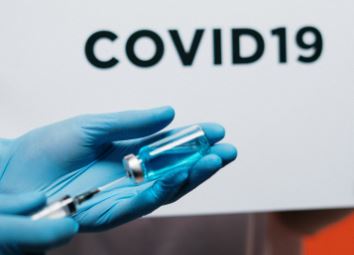
Michigan has Administered Over One Million Vaccines

|


|

|
|
|
|

February 1, 2021
Media Contact: Lynda Robinson, 313-348-8220
The Michigan Unemployment Insurance Agency has completed system updates for the recently extended federal unemployment insurance (UI) programs. All remaining Pandemic Unemployment Assistance (PUA) and Pandemic Emergency Unemployment Compensation (PEUC) claimants whose claims ended when CARES Act programs were interrupted in December can now either reopen, certify or apply for benefits available under the Continued Assistance Act (CAA). Claimants were notified from the UIA with information and instructions regarding the changes.
The CAA allows PEUC and PUA claimants an additional 11 weeks of benefits payable for the week ending Jan. 2 through March 13, 2021. Payments also include the additional $300 Federal Pandemic Unemployment Compensation (FPUC) weekly benefit.
PUA
PEUC
“We’re pleased to have restored the federal programs that so many workers in our state are depending on. These are vital programs that have helped Michiganders provide for their families as we continue to navigate COVID-19,” said Liza Estlund Olson, acting director of the UIA. “While this is a huge step forward, we know there’s still more work to do to ensure everyone receives the benefits they are entitled to.”
One final provision the Agency continues to develop is the Mixed Earners Unemployment Compensation (MEUC) program, which allows workers who earned at least $5,000 in self-employment income to apply for an additional $100 per week in supplemental benefits. MEUC is payable from Dec. 27, 2020 through March 13, 2021.
Claimants should continue to monitor their MiWAM account and the UIA website for updates.


|

Voluntary program promotes effective ventilation in Michigan restaurants and food establishments
Janurary 29, 2021
MEDIA CONTACT: Jason Moon, 517-282-0041
The State of Michigan is expanding on the new MI COVID-19 Safer Dining Program. Under the voluntary program, restaurants utilize a licensed HVAC contractor or engineer to inspect their ventilation systems and receive recommended changes to improve circulation within their workplace to reduce the risk of COVID-19 spread. The program’s parameters are based on the best guidance available from the CDC, EPA and the American Society of Heating, Refrigerating and Air-Conditioning Engineers.
The program, directed by the Dept. of Labor and Economic Opportunity (LEO), will help make restaurants operate more safely – for their workforce, diners, and local communities – and help diners identify restaurants committed to safer operation during the COVID-19 pandemic. Restaurants are encouraged to have their HVAC system inspected to ensure effective ventilation. Proper and efficient HVAC systems or other ventilation changes, along with compliance with MDHHS and MIOSHA orders and guidance, can lower the probability of transmission in indoor settings.
Once restaurants successfully complete the voluntary process, they will receive a certificate to post at their establishments that verifies their participation.
“This voluntary program compliments the State’s outreach and educational efforts related to HVAC and other workplace safety programs,” said COVID-19 Workplace Safety Director Sean Egan. “We remain committed to helping businesses implement processes and techniques to maximize safety through layered mitigation strategies, and this program is another opportunity for businesses to do just that.”
Businesses can begin the process now by visiting Michigan.gov/COVIDSaferDining to download the program participation forms to comply with the Michigan Safer Dining program and further mitigate the spread of COVID-19 in indoor dining locations.
The website also offers a variety of support resources for restaurants and other businesses, including resources to locate licensed HVAC contractors across Michigan.
“As our community members look to once again support our small, local business in person, building confidence that customer safety is being prioritized is going to be extremely important,” said People First Economy President Hanna Schulze. “The fact is, many of these businesses have been going above and beyond to provide safe environments for their customers and employees since the beginning of the pandemic – take the Michigan Restaurant Promise, for example. Opportunities like this ventilation certification will present another opportunity for businesses to communicate that they have been, and will continue to, take every care to serve patrons safely.”
Gov. Whitmer has proposed funding to support the Safer Dining Program as part of a $10 million supplemental budget request for restaurant support through MIOSHA.
The Safer Dining program builds on LEO’s existing suite of programs to support all types of Michigan employers during the COVID-19 pandemic. Programs include: